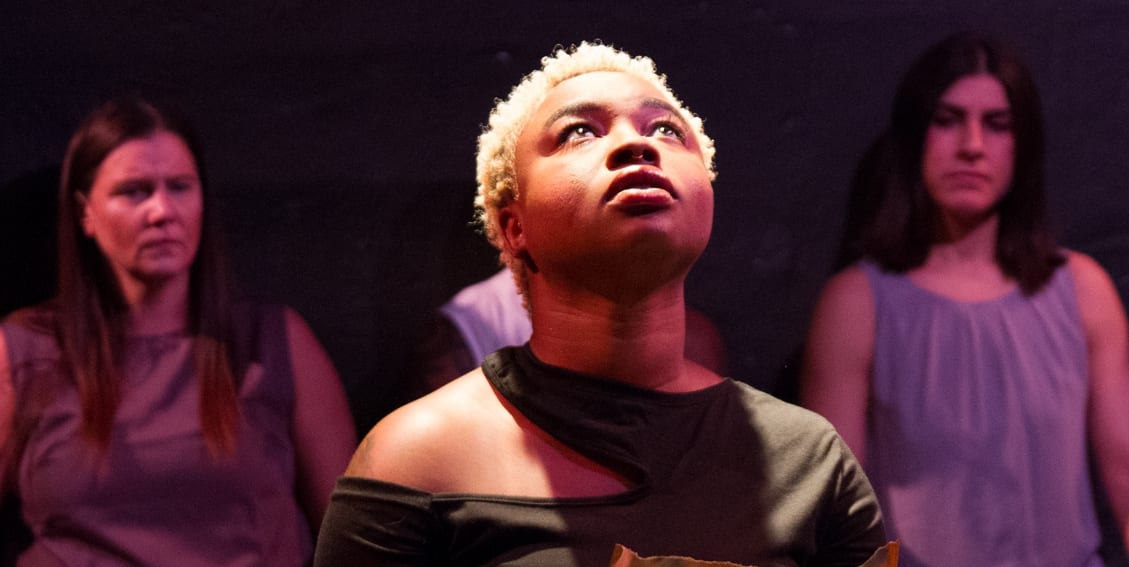The Old Testament story of Bathsheba and David – that of the powerful man wielding his influence to bed a beautiful woman – still resonates today, from the porn-star presidency to jailed celebrities. A new play looks at this archetypal tale of male privilege and pushes it into the modern day, Bathsheba portrayed an unapologetic woman whose desires stand in contrast to the man who seeks to sexualize and diminish her.
In April Ranger’s creative and clever dramatization that gorgeously weaves together biblical and modern dialogue and cultural touchstones with feminist issues and viewpoints, Bathsheba is Everywoman, who champions her sexuality, her body, and her ability to see beauty. Using psalms, “expressions of the heart,” this funny, moving mash-up stays faithful to the Biblical story and grafts it into the present-day.

Bathsheba is at first cat-called, then taunted by lecherous men on the subway platform; a pregnant Bathsheba queues at the pharmacy asking for the Plan B pill; she is lured to David’s quarters in a passage that weaves together Top Gun, John Hughes, the Oval Office, and Pretty Woman (another retelling of the Bathsheba story).
What makes this compact play so powerful is Ranger’s language, her ability to quickly swing from poetry to Old Testament phrasing, lines that richly ring with meaning in our milieu of rapidly changing women’s rights and declarations. She uses Bathsheba’s plight to define what it means to hold true to yourself, even as it makes you more alone – even against the values of her husband Uriah, who places his patriotism and soldierly duties above his love for his wife. These two proud spouses have no power over King David, who will tragically use them to his own ends.
And yet there is beauty, in spite of the garbage in the cattails and among the rocks, everywhere you look, a recurring theme in the play. Ranger uplifts the story by combining this ceaseless and ongoing tragedy with an artist’s eye to those small moments of reflection and transcendence. It’s told in a taut, thoughtful, and energetic form.
The cast is outstanding: Tanyamaria as Bathsheba is proud, curvy, and thoughtful, greeting the audience as a narrator before moving back behind the fourth wall. The ensemble players work hard rotating the play’s many roles, with standouts Elizabeth Kenny (hilariously versatile) and TL Thompson, who delivers a beautiful passage towards the end of the play that is poetic and ethereal.

